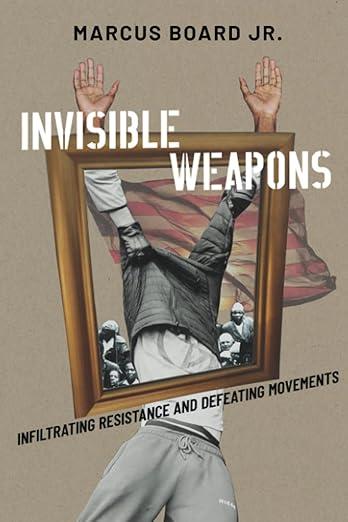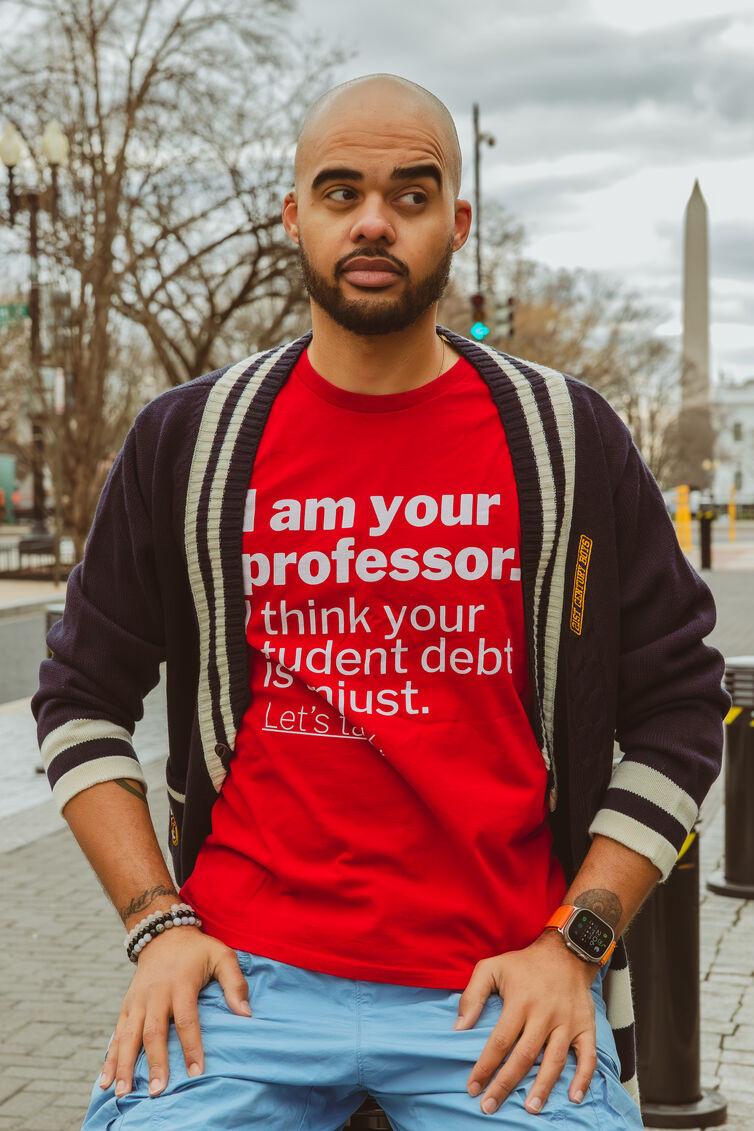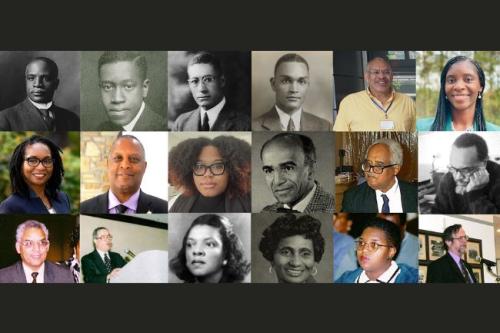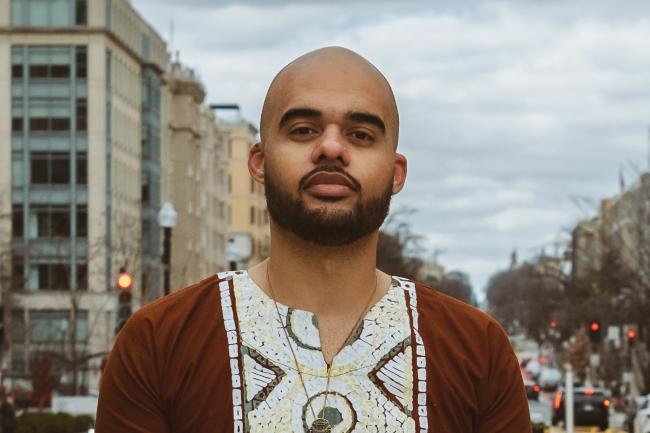Howard University’s Dr. Marcus Board Jr., an associate professor of political science, is working on a new book project that examines Black politics, political violence, and authoritarianism as part of his tenure as a 2025-26 Democracy Visiting Fellow at Harvard University’s Kennedy School.
Board recently joined the latest cohort of Democracy Visiting Fellows, a fellowship program that provides participants with an opportunity to expand their research on substantive democratic governance issues. The program, part of the Kennedy School’s Ash Center for Democratic Governance and Innovation, brings together academic scholars, political leaders, and professionals across various industries to engage in a weekly democracy community seminar series.
“We all come together to talk about the issues of the day and talk about a set of readings. It’s a really interesting space,” said Board. “It’s given me an opportunity to think about more people in the world as well as seeing how many different opinions there are on issues of democracy, government, and oppression. Without this opportunity, I don't understand my audience as well, and so it's a really great opportunity for me as I work on my next book.”
Political Violence and Embracing Pluralism
During the fellowship, which began in August and concludes in July 2026, Board will continue his work in developing his book project, “Democracy is Black: Erasing Political Violence and Embracing Pluralism at the Margins.” The book, Board explains, will explore Black politics as it relates to political violence and possible solutions to combating authoritarianism in America. The project will also examine pluralism — the ideology that different people, beliefs, and cultures can coexist with the same society — and ways of better embracing the ideas of people who have been historically pushed to the margins of society.

“Black politics have never committed to political violence and if we're trying to save democracy, then we need to understand a group of people that not only chose against political violence but have been able to embrace the idea of pluralism in such a way that would be useful to the wider United States,” said Board. “As the United States is trying to figure out how to solve authoritarianism, and they keep going back to the same well, what they're missing is that the same people that they have pushed to the margins, they've also pushed their solutions out there too.”
Board’s research engages social movements, radical Black feminist theories of power, and public opinion. His previous book, Invisible Weapons: Infiltrating Resistance and Defeating Movements (Oxford University Press, 2022), examines revolutionary politics during the Movement for Black Lives. Invisible Weapons explores how “neoliberalism is synonymous with anti-radicalism and uses invisible weapons that stop oppressed people from advocating for their own needs and grievances.” Board’s forthcoming book project will examine his idea of a “zero sum democracy.”
“Zero sum democracy is essentially how you can embrace domination without committing to racism, sexism, ableism, or homophobia. I want to talk about how the system itself can allow you to reinforce systems of domination,” Board explained. “If we think about how Black Feminist Theory states the idea of finding deep, human, and necessary political value at the margins, it's that same type of idea that helps us understand that when you accept people's full humanity, then you realize that these systems are actually reinforcing their own existence, domination, and their own systems of oppression. They're pushing away all the things that we need to have happier and healthier and more whole lives.”

At Howard, Board is the university’s Black Politics Committee Chair as well as a faculty advisor for the Political Science Society student group. Board’s experience in facilitating discussions on democracy and community building initiatives is work he’s spent much of his career cultivating. In April, he collaborated with administrators, faculty, staff, students, and organizers to create the “Summer for Democracy Teach-In” event. The two-day event featured discussions and presentations on themes such as agriculture, finance, justice, organizing, sustainability, and youth politics.
“We had over 60 presenters and 30 local student and national organizations coming together to talk about what it means to have a full life,” Board noted. “It’s something that I think Black politics is uniquely suited to do, and we did it well. It's not necessarily committed to some kind of partisan ideology, but it's more so about getting people to understand other points of view, getting people to understand where their agency is and where their power is.”
Board also made note of his goal to share the academic excellence of Howard scholars and researchers, saying that he is insistent on “taking every opportunity to make our genius and our brilliance, and, more importantly, our mission clear everywhere I go. The idea of ‘Excellence in Truth and Service’ is constantly the wind in my sails.”
He continued, “I don't doubt the power that any Howard-Harvard connection can bring. I'm hopeful and optimistic that with this [fellowship] experience, I will be able to communicate these ideas to a bigger audience and push the message and the mission further than we ever imagined.”
Keep Reading
-
 News
NewsNew AI Courses and Partnerships Signal Latest Push in Howard’s AI Initiative
Jan 14, 2026 4 minutes -
 Artificial Intelligence
Artificial IntelligenceHoward University Civil Engineering Research Team Uses AI to Help Address Climate Change Crises
Dec 16, 2025 3 minutes -
 Legacy
LegacyBuilding the Mathematical Mecca: Howard’s Half‑Century of Innovation, Scholarship, and Leadership
Jan 29, 2026 7 minutes
Are You a Member of the Media?
Our public relations team can connect you with faculty experts and answer questions about Howard University news and events.
Submit a Media Inquiry

